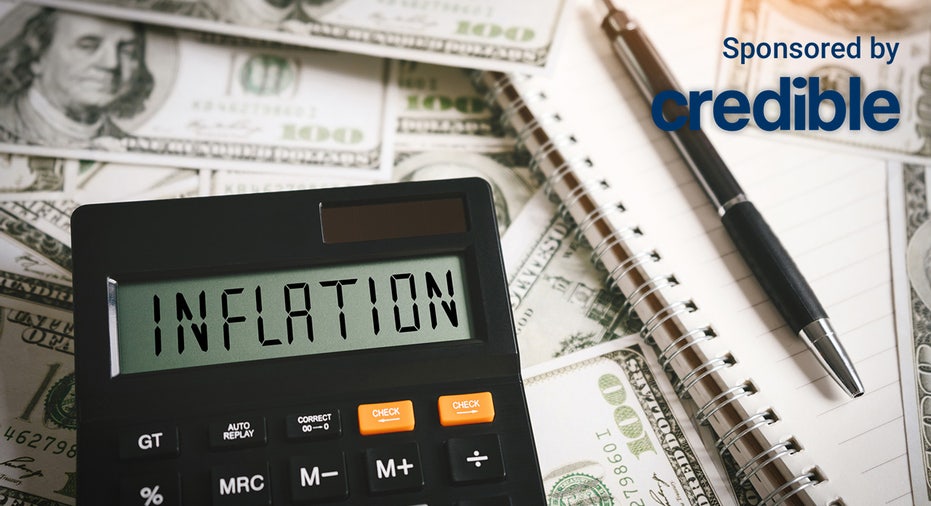Inflation reaches new 40-year high in May with no sign of slowing down
Housing, food and gas push inflation to 8.6% annually

Inflation surged to a new 40-year high in May, leaving economists disappointed in the report. (iStock)
Inflation surged to yet another new 40-year high in May and showed no signs of slowing down.
The Consumer Price Index (CPI), a measure of inflation, rose 8.6% annually in May, according to the latest report from the Bureau of Labor Statistics (BLS). This comes after inflation had eased slightly in April, falling to 8.3% annually. On a monthly basis, inflation increased 1% from April to May.
The increase was driven by a surge in prices for shelter, gasoline and food, according to the report. The energy index increased 3.9% for the month, while the gasoline index rose 4.1% and the food index increased 1.2%.
"Inflation surprised to the upside in May, placing more pressure on policymakers," Curt Long, National Association of Federally Insured Credit Unions' (NAFCU) chief economist and vice president of research, said. "Energy was a key contributor, both as a consumer good and as an input in other areas that saw strong growth, like airfares.
"But price gains were strong across the board," Long continued, saying the banking industry should "be prepared for more hawkish talk from Fed officials and the related market impacts."
As the Fed continues to battle inflation, interest rates could rise. One way that you can take advantage of current interest rates is by refinancing your student loans. You can visit Credible to find your personalized interest rate without affecting your credit score.
MILLENNIAL, GEN Z CONSUMERS TURNING TO BNPL SERVICES AS COSTS RISE: SURVEY
Economists disappointed with May inflation
Economists were not expecting inflation to rise in May and expressed disappointment that the report showed no signs of a slowdown after the dip in April.
"It's hard to look at May's inflation data and not be disappointed," Morning Consult Chief Economist John Leer said. "We're just not yet seeing any signs that we're in the clear. While elevated gas prices were the primary driver of inflation in May, prices for used cars and trucks rose once again after falling for the past three months. Shelter costs are also on the rise, even as rising interest rates drive down housing demand."
And inflation may not let up soon, with sectors such as the oil industry expected to maintain elevated prices throughout the summer.
"Oil prices also increased in May and are expected to remain elevated amid high summer travel demand and low supply due to the Russia-Ukraine war," Dawit Kebede, Credit Union National Association's (CUNA) senior economist, said. "The price of brent crude oil is trading above $120 a barrel – 30% higher prior to the start of the war.
"People are feeling these higher prices when they are filling their tank," Kebede said. "A persistent increase in oil prices also has a cascading effect on prices of other commodities and services because oil represents a big portion of production costs."
Because there has not been much pullback in consumer demand, Leer warned that the rising cost of living could be eating into Americans’ savings accounts, "which could be the catalyst for a true contraction in real consumer spending."
If you are struggling financially amid today’s price increases, paying down debt using a personal loan could help free up your monthly cashflow. Visit Credible to compare multiple personal loan lenders at once and choose the one with the best interest rate for you.
INFLATION CAUSING MORE AMERICANS TO INCREASE THEIR CREDIT BALANCE, TRANSUNION STUDY SAYS
Fed to raise interest rates as inflation surges
The Federal Reserve raised interest rates by 50 basis points last month, the highest rate hike in about 20 years. Before that, the Federal Open Market Committee (FOMC) raised interest rates by 25 points at its March meeting. But the Fed is still likely to raise rates several more times this year and into 2023 as it combats decades-high inflation.
"The Federal Reserve Open Market Committee is expected to increase the interest rate by another 50-basis points when they meet next week," Kebede said. "This will reduce inflationary pressure by slowing consumer demand. However, it has little effect on influencing prices caused by supply shortages such as oil."
If you are interested in taking advantage of interest rates before they rise further, you could consider refinancing your mortgage to lower your monthly payments. You can contact Credible to speak to a home loan expert and see if this is the right option for you.
Have a finance-related question, but don't know who to ask? Email The Credible Money Expert at moneyexpert@credible.com and your question might be answered by Credible in our Money Expert column.




















